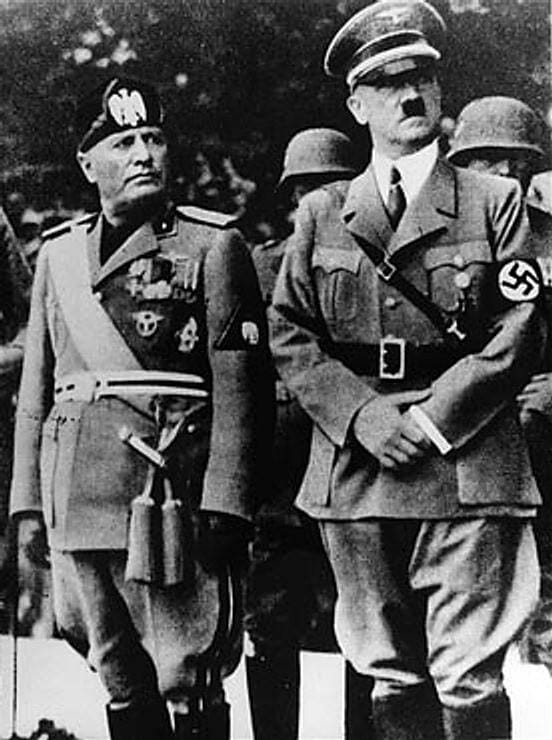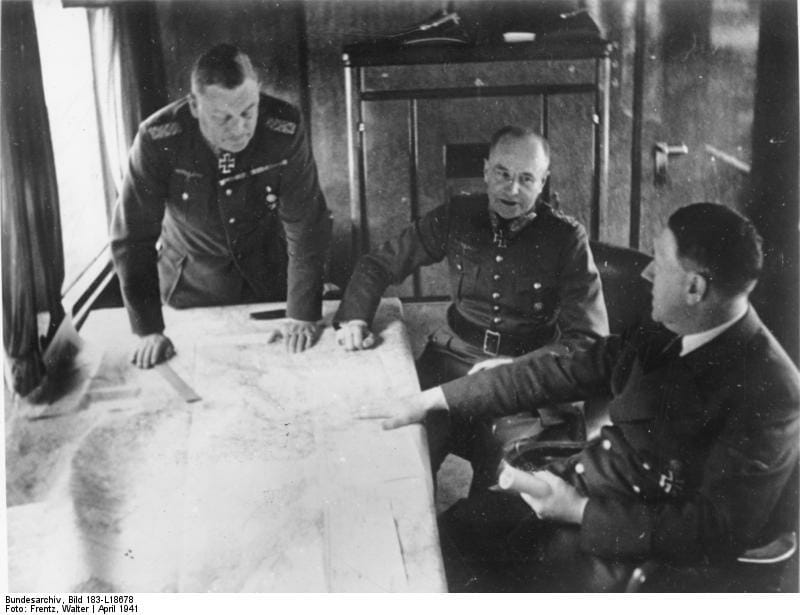Alternative history is not the most productive hobby to have. It also sort of goes against main principles of historism. We stand on our pile of books and look down on historical decisions, judging them using information that people at that time simply didn‘t have. However, some pieces of alternative history are actually quite interesting. We introduce 5 mistakes Axis made that contributed to its ultimate loss in the war.
It is note the first time we indulge in alternative history – we already listed 5 ways Hitler could’ve won the Second World War. However, this time we will look at the matter a little more serious and will include other Axis states as well. So what were those 5 mistakes that prevented Axis from winning?
Invasion of Greece
Mussolini, a loyal Hitler’s companion, was feeling left out of the war in 1940. He wanted to contribute to the ultimate victory of Axis, so he devised an invasion to Greece. The problem was that he did so without consulting Hitler, being obsessed with an idea of having his on achievement. Mussolini said that Hitler will find out about the occupation of Greece from newspapers.

Italy invaded Greece in October 28, 1940. Italian forces were motivated to move forward, but were soon pushed back. Battles continued, but Italy could try again breaching forward only in March 1941 only to be pushed back again. Situation was not pleasant for anyone and did not help settling situation in Balkans. So Germany had to invade Greece in April and by June the country was occupied completely. This, of course, had impact on Hitler’s plans of invading Soviet Union. It is said that this unplanned operation postponed invasion for about 5 weeks.
Attack on Pearl Harbor
At the beginning of WW2 Japan’s situation was not good. It had several newly occupied territories, but pushing forward to obtain more was very difficult. Japanese ambitions were hindered by lack of resources, economic sanctions, U.S. supporting China and some other factors. It was decided that one blow could eliminate U.S. Navy from the Pacific theatre, which would allow Japan to concur more islands and to strengthen its dominance in the region.

but a third wave could’ve prolonged the war for 1-2 years. (Wikimedia)
On 7th of December, 1941, such blow was delivered on Pearl Harbor, but, as you know, it wasn’t successful and U.S. Navy quickly regained its power to soon rule world’s oceans again. Japan created a wave that it could not withstand and was thus defeated. Furthermore, because attack on Pearl Harbor was carried out without officially declaring a war and with no warning, it was later considered a war crime.
Even if you don’t think attack on Pearl Harbor was a mistake, there is another mistake that was done during this operation. Three waves were planned, but after the second wave Japanese aircraft carriers, submarines and battleships decided to withdraw from the scene. American anti-aircraft defence was getting stronger – two thirds of Japanese losses happened during the second wave. Also, location of U.S. aircraft carriers was unknown and they could’ve came back unexpectedly.
Third wave was planned to demolish ground targets – dry dock, torpedo warehouse and so on. Now historians agree that if third wave was carried out, war would’ve been longer at least by 1-2 years. 14 out of 16 ships damaged during the attack came back to service.
Failure to involve Turkey and Spain
Turkey was fighting side by side with Germany during WW1 and Hitler aided Francisco Franco during Spanish Civil War. However, neither of these two states got involved in the Second World War. It is difficult to say it was Axis mistake, since they could not control everyone, but the war could have developed much differently, if Spain and Turkey got involved.

Spain could’ve helped Germany to deal with Gibraltar – a territory of Great Britain, which controlled the passage between Atlantic and Mediterranean. As it was, Spain remained neutral and didn’t even allow German troops to cross its territory (for example, Sweden did). Meanwhile Turkey could’ve helped establishing dominance in Caucasus, which was rich in resources. But instead Turkey declared war on Germany when WW2 was already almost over.
If these two states got involved, German dominance in southern Europe would’ve been immense and operations in Northern Africa would’ve been easier.
Treating people like slaves in Japan’s occupied territories
When Japan occupied islands in Philippines and Indonesia, locals considered Japanese liberators. They were sick of European rule and thought that Japan is going to be a much better ally. However, Japan blew this image to pieces when it introduced forced labour, regular physical abuse and capital punishment for small crimes. People were treated like slaves and so could not possibly be loyal to Japanese rule.

And so, as war progressed, some people from Philippines and Indonesia started guerrilla operations against Japanese forces. Others were informing Allied about Japanese positions and plans. If Japan was treating people properly, we could imagine that it would’ve had stronger support, which would result in a strong resistance to coming U.S. forces.
Hitler’s decision to start a war in first place
This one is kind of weird – how one of the biggest mistakes in a war can be starting it? But the truth of the matter is that Germany was expanding its influence without any military action already. It was growing and its influence was getting stronger. History professor Robert Citino thinks that Hitler wanted a war from the very beginning, but did not realise his goals can be achieved without an active conflict. Sometimes a bluff is strong enough.

However, Hitler wanted a war as a tool, regardless of what a goal was. Victory without a massive war was not satisfactory for him. If he settled with smart, aggressive diplomacy, who knows where he would stop. Citino thinks that using diplomatic measures alone would’ve helped Hitler achieve everything Wehrmacht did in the first three years. Now we can only imagine what could’ve been, but we will never know for certain.
What other mistakes of the Axis would you include?



